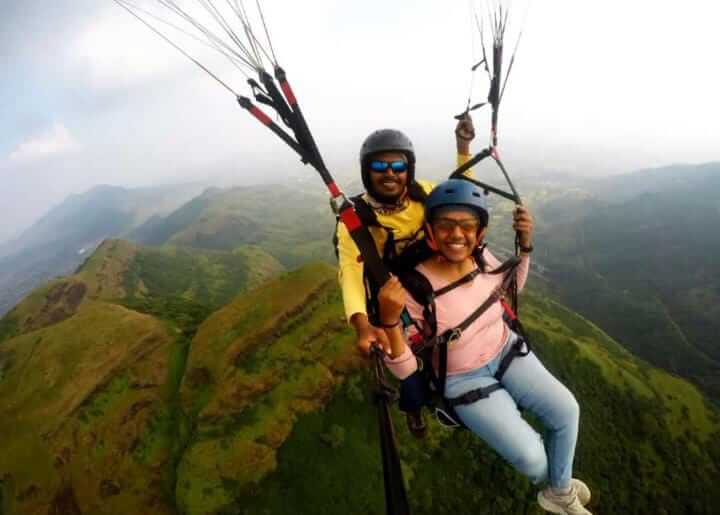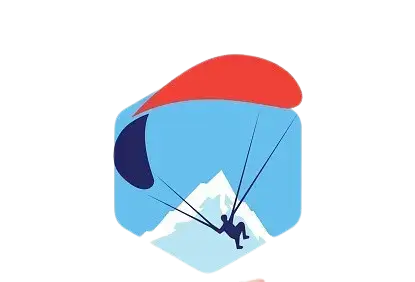
paragliding, sport of flying parachutes with design variations that enhance their gliding capabilities. Unlike hang gliders, their close relations, paragliders have no rigid frame; the parachute cover acts as a sect and is constructed of fabric cells with openings at the front that allow them to be inflated by movement through the air — the “ ram- air ” effect. The airman is suspended in a seated harness and controls the sect via lines attached to the running edge of the paraglider. These lines may be operated collectively to turn the paraglider or contemporaneously to impact pitch and speed. Takeoff and wharf are on bottom and generally do on a hill or mountain. To launch, the airman first inflates the sect by pulling it up like a vampire and also runs down the hillside until flying speed has been reached. generally a speed of about 12 long hauls per hour( 19 km per hour) is enough to launch the craft. The sport can be traced to the conditioning of French parachute innovator Pierre Lemoigne, who hitch- launched his advanced round- parachute tents in the 1950s. The ram- air- inflated cell structure began in the early 1960s with the vampire and parachute designs of the Canadian- born American innovator Domina Jalbert. These designs evolved into steerable blockish parachutes with fairly high forward speed. It was soon set up that they had sufficient glide performance to allow them to be launched from steep pitches as well as by the aircraft deployment usual for parachutists. From the late 1960s interest in the gliding capability of parachutes grew sluggishly but steadily. The paraglider developed in the United States and in Alpine areas of France and Switzerland, where it eventually evolved completely. Some mountain rovers saw paragliding as an volition to rappelling( abseiling) down after an ascent, while other suckers appreciated its eventuality as a sport in its own right. As soon as it was realized that the sect didn’t have to repel the opening shock to which jump parachute tents are subordinated, thinner lines and lighter construction were used. farther enhancement came from widening the sect by adding redundant cells. This increases the sect’s aspect rate( the relationship of the span to the passion) and improves its effectiveness. Using thermal lift, soaring breakouts of 100 long hauls( 160 km) are common. In competition aviators fly routes to distant pretensions, recording their progress by upstanding photos or GPS( Global Positioning System) traces. In favourable rainfall the routes may be 60 long hauls( 100 km) or further and incorporate several turn points. By the late 1990s the world record for straight distance was 208 long hauls( 335 km). The Fédération Aéronautique Internationale( FAI) World Paragliding Crowns have been held every other time since the first crown at Kössen, Austria, in 1989. Although paragliding is the favored term, there are several variations, which can give rise to confusion. occasionally the original French word parapente is used. Parasailing is frequently applied to the exertion of hauling a cover behind a boat for pleasure lifts, and parascending describes the European sport of hauling low- performance paragliders into the air with the object of wharf on a small target. Parafoil is a trade name for certain ram- air parachutes. also, small motors caravanned by the airman can be used to drive paragliders, in which case the aircraft is appertained to as a paramotor or powered paraglider( PPG).
Kamshet Paragliding Adventure
House no 48, Govitri, Kamshet – Kundali Rd, Govitri, Kamshet, Maharashtra 410405
Mobile: 08668511928
